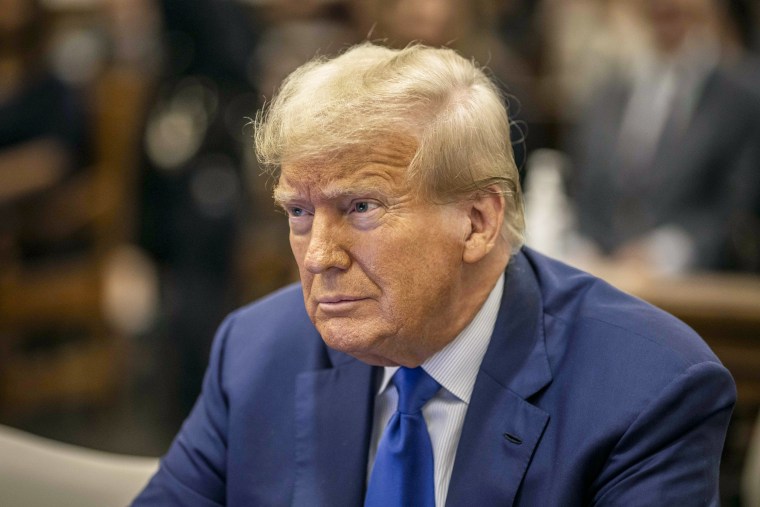Over the summer, between Donald Trump’s third and fourth criminal indictments, the former president’s political operation issued a written statement that read in part: “[W]hy did [prosecutors] wait two and a half years to bring these fake charges, right in the middle of President Trump’s winning campaign for 2024?”
It was a familiar refrain. In fact, it was a line the Republican pushed by way of his social media platform over and over and over again.
Evidently, it’s back. Trump, who’s pleaded not guilty in each of his pending criminal cases, published this missive on Tuesday, for example:
“Why didn’t they start the totally political BIDEN INDICTMENTS & COURT CASES Three (3) Years Ago, instead of the MIDDLE OF MY CAMPAIGN??? Third World Country-ELECTION INTERFERENCE!!!”
It was not a one-off. The former president, as he’s done before, has spent the week pushing the same line, demanding to know why President Joe Biden didn’t file the criminal charges “three years ago,” instead of “right in the middle” of the campaign.
The questions were no doubt rhetorical, but in case anyone is inclined to take the talking point seriously, it’s probably worth revisiting our earlier coverage and reviewing why this makes far less sense than Trump seems to realize.
Right off the bat, let’s note that the former president’s timeline doesn’t quite work: Three years ago, he was in office, not Biden. It’s also important to emphasize that Trump’s hysterics are rooted in the idea that the incumbent Democratic president is chiefly responsible for the pending criminal charges, but that’s absurd: Trump was indicted by grand jury members, an independent special counsel, and local prosecutors who have nothing to do with the White House.
Just as notably, if prosecutors, motivated by partisan goals and electoral considerations, were trying to unveil the allegations at a politically opportune moment, they probably wouldn’t have filed the indictment in early August — roughly five months before the Iowa caucuses, seven months before Super Tuesday, 11 months before the Republicans’ nominating convention, and 15 months before the next general election.
Relatedly, Mary McCord, an MSNBC legal analyst and a former federal prosecutor, added in a great recent piece, “If the DOJ was weaponizing its investigative powers for political purposes, surely it would not be giving Trump the fodder to gain media attention and raise enormous sums for his 2024 presidential campaign.”
Indeed, the entire reasoning behind the talking point is difficult to wrap one’s head around: Earlier charges against the former president helped him solidify intra-party support and gave him a significant fundraising boost. So we’re to believe that prosecutors brought new charges as part of a secret scheme to undermine his candidacy?
But even if we put all of these relevant considerations aside, we’re left with a nagging detail Trump apparently doesn’t want to understand: Criminal investigations tend to be lengthy, time-consuming endeavors. As a Washington Post analysis explained:
The larger point is that, even if we accept that Trump is speaking loosely, much of the alleged conduct outlined in three of Trump’s four indictments hadn’t come to light — or in some cases even taken place — anywhere near three years ago. These things take time, and we’ve seen that play out.
The indictment in the classified documents scandal obviously couldn’t have been filed three years ago — Trump hadn’t finished committing the alleged crimes — but prosecutors also didn’t file the other cases in early 2021 because it took time to conduct thorough investigations, collect evidence, hear from witnesses, and work through the grand jury process.
This isn’t evidence of a conspiracy; it’s the opposite.
This post updates our related earlier coverage.

